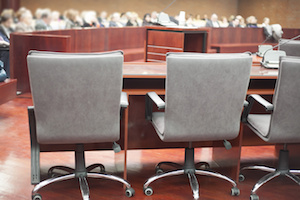Earlier this month, the Supreme Court of Iowa issued a ruling in three recent appeals of child sex abuse convictions that limited the extent of permissible expert witness testimony during trial. According to the Iowa justices, sexual abuse expert witnesses can explain the symptoms of sex abuse to jurors but are not permitted to opine on whether or not the alleged child victim actually exhibited them.
Three Sexual Abuse Convictions Appealed to Iowa Supreme Court
In early December, the Iowa Supreme Court granted retrials to three alleged abusers in separate sexual abuse cases because prosecutor expert witnesses went too far with their testimony. Each case prosecuted men for allegedly abusing young girls who were in their own family, and each featured an expert sexual abuse witness to help jurors determine whether or not the alleged abuse occurred. A therapist, doctor, and forensic interviewer provided testimony to jurors that identified the symptoms of sexual abuse and then went on to identify observed behavior in the alleged victim.
According to one expert an alleged victim’s “demeanor was completely consistent with a child who has been traumatized, particularly multiple times.” Another expert testified that during her work with the child in her case she, “observed some ‘telltale’ physical manifestations [of abuse] such as dressing in layers, cutting hair, dressing ‘very boyish,’ and reacting to triggers.” With help from these comments and additional expert witness testimony that similarly connected the alleged victim’s behavior to symptoms of child abuse, prosecutors were able to earn convictions in all three cases.
During trial, defense attorneys attempted unsuccessfully to prevent the expert witnesses from being allowed to testify about specific behavior indicative of child abuse, but all three defendants found more success on appeal.
Iowa Supreme Court Overturns Child Abuse Convictions due to Expert Testimony
Citing Iowa case law, which prohibits expert witnesses from testifying to matters of fact, a unanimous Iowa Supreme Court decision found that all three sex abuse cases had improperly featured extensive expert testimony. According to Iowa law, expert witnesses are permitted to explain symptoms of recognized psychological syndromes generally, but cannot speak to the facts of the case. Additional fact witnesses are required to connect the general principles discussed during expert testimony to the specific facts at issue during trial.
In these cases, fact witnesses would consist of individuals who observed the specific behavior of the alleged child victim. According to the Iowa Court, only fact witnesses who had seen the alleged victims after the claimed abuse could speak to their behavior, and it was up to the jury to determine whether or not that behavior matched the symptoms of child abuse explained by the experts earlier in the trial. Although the distinction between permissible and impermissible expert testimony is a fine line, it is an important one that preserves the role of juries as ultimate finders of fact.
Limitations on Expert Witness Testimony Reinforce Role of Jury
Criminal and civil juries are responsible for examining the available evidence and making the ultimate decision on the outcome based on how the facts of the case align. By having expert witnesses tell jurors that an alleged victim suffers from symptoms of child abuse, courts risk taking the issue of fact away from jurors because rather than determine whether or not the evidence supports a finding of abuse, jurors can easily be swayed by an expert’s own interpretation of the case. Although the Iowa Supreme Court noted that expert witnesses may connect an alleged victim’s behavior to the symptoms of child abuse if the defense first argues the contrary, the state’s highest court reminded prosecutors that experts are not permitted to testify about their interpretation of relevant facts.
While the Court unanimously found the expert witness testimony to cross the line of permissible testimony, two of the seven justices dissented from the majority’s decision to overturn the convictions. Saying the impermissible expert testimony did not significantly impact the conviction, the dissenting justices argued the Court should not have granted new trials. However, the majority opinion disagreed and determined that when the experts took on the role of factual interpretation, jurors were influenced in such a way that the outcomes were tainted. New trials will be held in all three cases.










